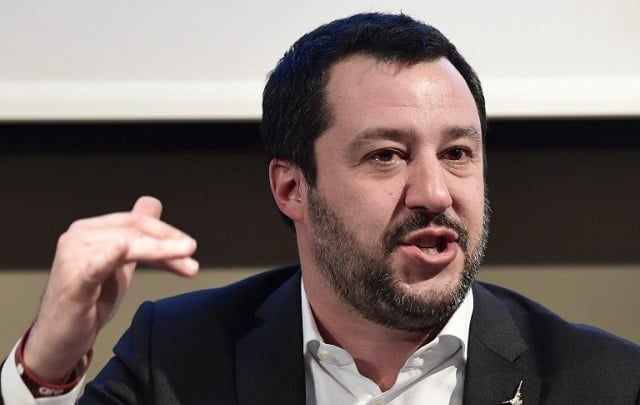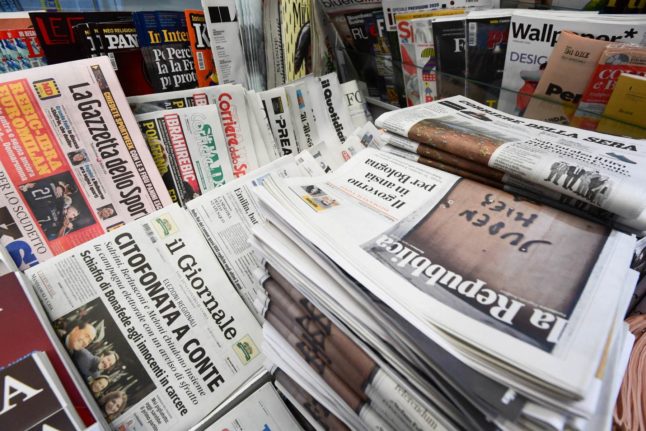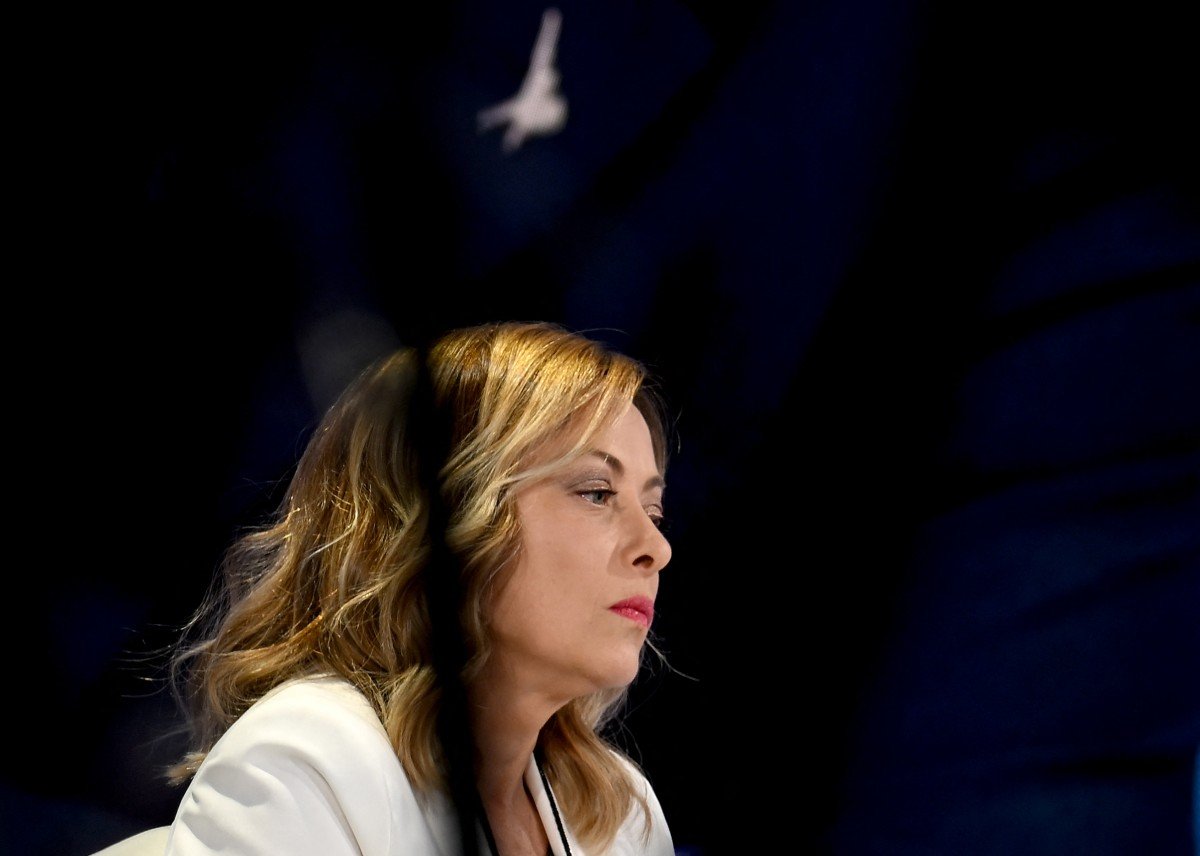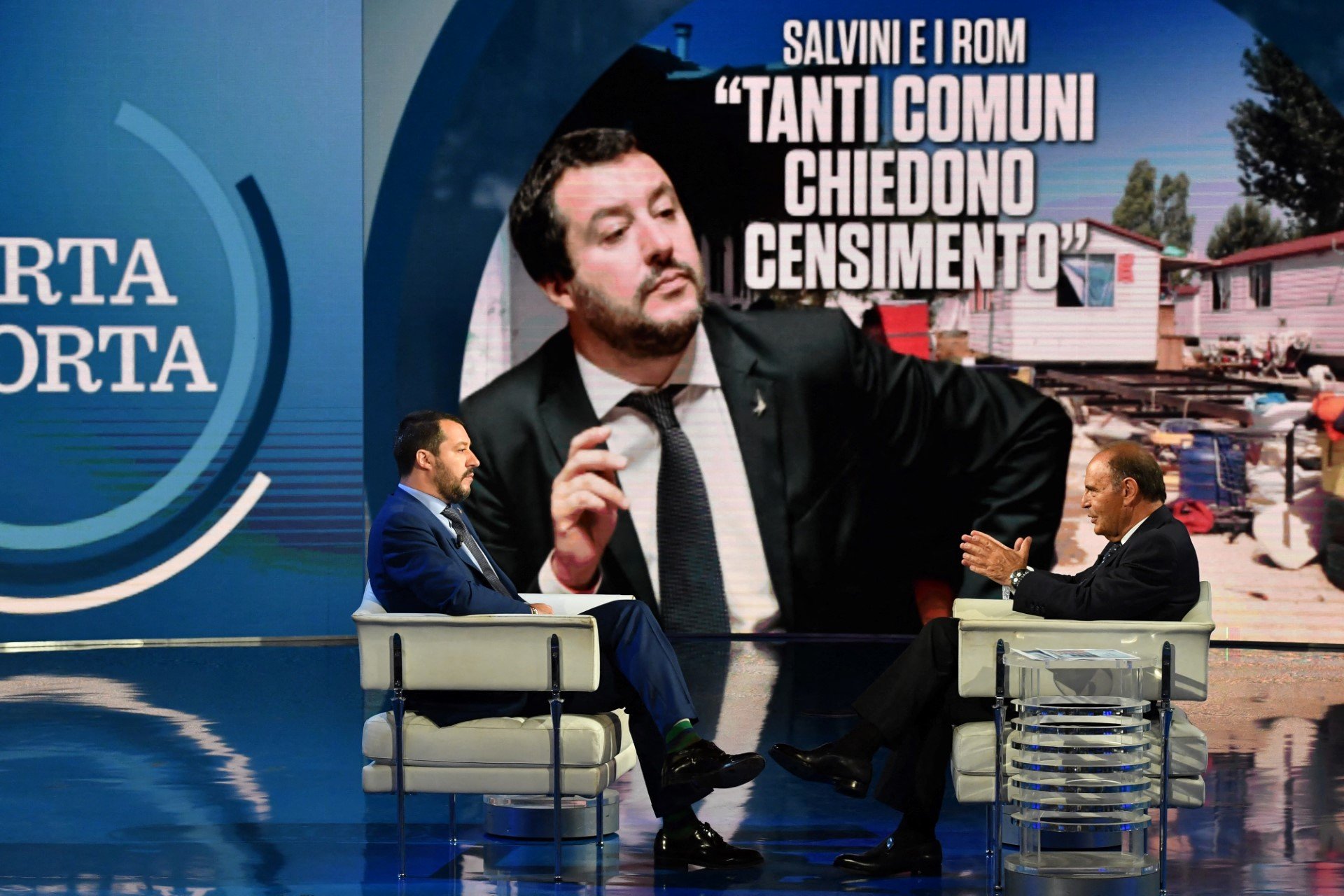“In Italy there are too many illegal immigrants who go around making trouble. I can't take it anymore,” said Salvini on political talk show Dimartedì.
Salvini's Northern League party is part of a centre-right alliance led by Silvio Berlusconi and currently leading opinion polls.
Salvini said that if he became prime minister, he would ensure that within a year 100,000 “illegal migrants” would be sent back to their countries of origin, saying: “In this moment of crisis and unemployment, the more migrants that come in, the more confusion.”
However, it is not clear how he plans to overcome the bureaucratic obstacles that have slowed down deportations, including the difficulty of tracking down those who live without documents and work in the black economy, or dealing with countries of origin that refuse to accept deported migrants.
The Northern League leader tweeted along with the show, using the hashtag #Primagliitaliani (“Italians first”), one of the party's slogans in the 2018 election campaign and a sentiment echoed in several of his statements.
He accused former PM Matteo Renzi of “betraying the Italians” and said the Northern League would put forward as a candidate “anyone who recognizes themselves in the League's slogan 'Italians first'”.
The day before he had said on Twitter that this slogan was the party's “only objective”.
The 'Italians First' slogan, with its clear parallel to Donald Trump's catchphrase 'America First', is one of several recent shifts in Salvini's rhetoric which give insight into how the party hopes to gain votes in the 2018 election scheduled for March 4th.
- What you need to know about Italy's 2018 election
- Political cheat sheet: Understanding Italy's Northern League
- Italy's election is a political risk for the EU, economic commissioner warns
When the pair met, Salvini tweeted a photo of him and Trump smiling and doing thumbs-up signs, though Trump denied claims he had told the Northern League leader “I hope you become prime minister soon”, and said he didn't even know who Salvini was. But that didn't deter Salvini, who was the first Italian politician to congratulate Trump on his election, tweeting “Go, Donald, GO” and the hashtag #oratoccaanoi (“now it's our turn”).
Un saluto dagli Stati Uniti, amici! Go, Donald, GO!#trump2016 #MakeAmericaGreatAgain @realDonaldTrump pic.twitter.com/RfUeDGRGMI
— Matteo Salvini (@matteosalvinimi) April 26, 2016
By repeating 'Italians first', Salvini also demonstrated the shift in tactics from the party, which was originally founded as a secessionist movement in the northern area it calls Padania.
In 2014, the Northern League launched a sister movement aimed at Italy's south and titled Noi con Salvini (“Us with Salvini”). This angered party founder Umberto Bossi, but Salvini said of the party's previous criticism of mafia activity, low employment figures and crime in the southern regions: “We have never attacked citizens of the south, only those who manage it”.
Under Salvini's leadership, the Northern League has changed its focus from campaigning for autonomy for the northern regions to a heightened emphasis on its anti-immigration and anti-EU stance.
In his Tuesday interview, he said: “My League is a league which has chosen to speak to all of Italy” as well as saying he was “less and less interested” in differences between the political right and left.
The Northern League also dropped the word ‘north’ from their official logo in late December, approving a simple logo with the word ‘League’ above the party’s image of 12th-century Lombard warrior Alberto da Giussano.
On the new logo, the heading 'Lega' is now accompanied by the new slogan ‘Salvini premier’, yet another sign that the party is increasingly focussed on its figurehead.
If the centre-right bloc gains a majority, either Forza Italia or the Northern League will choose the country's next prime minister, depending which of the two parties gets more votes. Currently, Forza Italia is just ahead with opinion polls showing it with 16 percent of the vote compared to the League's 14 percent; however, Forza Italia's leader Berlusconi is ineligible to run for office due to a tax fraud conviction.
Salvini also defended the party against accusations of racism in the Tuesday interview, after a Northern League politician said that migration threatened to “wipe out our white race” in what he later claimed was a slip of the tongue.
Speaking on Tuesday, the party leader said that “the only antidote to racism is controlled immigration”.





 Please whitelist us to continue reading.
Please whitelist us to continue reading.